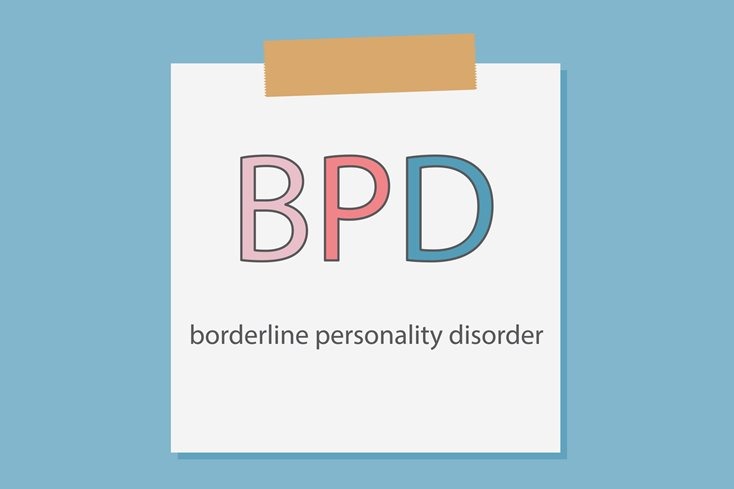In the journey of human existence, the question “Who am I?” holds a profound and timeless allure. For individuals with Borderline Personality Disorder (BPD), this question often becomes a persistent challenge due to the rapid changes in self-identity and self-image they experience. These fluctuations can result in unstable life patterns and difficulties in relationships, careers, and emotional well-being. However, the path to resolution lies in embracing self-awareness, mindfulness, and the conscious transformation of one’s self. Let’s explore Borderline Personality Disorder and therapy, providing actionable steps for self-discovery and a brighter future.
Symptoms of Borderline Personality Disorder
Borderline Personality Disorder (BPD) is a mental health condition that is marked by intense emotional experiences and interpersonal challenges. The following are key symptoms that can manifest in individuals with BPD:
- Intense Fear of Abandonment: Individuals with BPD often experience overwhelming fear of abandonment, whether real or perceived. This fear can lead to clingy behavior or frantic efforts to avoid perceived or actual abandonment.
- Unstable and Intense Relationships: Relationships in BPD can be extreme, swinging between idealization and devaluation. A person may initially see someone as perfect, only to later feel disappointed or angry when their expectations are not met.
- Rapidly Shifting Self-Image: Those with BPD often struggle with an unstable sense of self, causing frequent changes in their goals, values, and identity.
- Impulsive Behaviors: BPD may lead to risky behaviors like reckless spending, substance abuse, unsafe sexual activities, or binge eating. These behaviors are often used to cope with emotional pain.
- Chronic Feelings of Emptiness: Many individuals with BPD describe a persistent feeling of emptiness or a void, which can be emotionally draining and hard to articulate.
- Intense Anger or Difficulty Managing Anger: Anger in BPD may seem disproportionate to the situation, and individuals may struggle to control their emotional reactions.
- Dissociation: Chronic feelings of dissociation or detachment from reality are also common. This may involve feeling disconnected from one’s body, thoughts, or surroundings.
The Importance of Self-Awareness in BPD
Borderline personality disorder and therapy: Self-awareness is the foundation for healing and self-discovery in individuals with BPD. It involves recognizing and acknowledging emotional patterns, thoughts, and behaviors without judgment. Though the emotional turbulence associated with BPD can make self-awareness seem difficult, it is the first step toward transformation.
By developing self-awareness, individuals can start to understand the triggers for their emotional reactions, as well as the cycles that contribute to negative feelings. Recognizing these patterns is important for breaking the cycle of emotional instability and is often the first step in therapy for BPD.
Mindfulness: A Powerful Tool for Healing
Mindfulness is a therapeutic technique that can greatly benefit individuals with BPD. It involves being present and fully engaged in the moment without judgment. For individuals with BPD, mindfulness offers an opportunity to observe their thoughts and emotions without becoming overwhelmed or caught up in past regrets or future anxieties.
Mindfulness is helpful in several ways:
- Enhances Emotional Regulation: By practicing mindfulness, individuals can learn to notice their emotions and respond to them in a balanced manner. It helps in preventing emotional outbursts or impulsive reactions.
- Reduces Feelings of Emptiness and Detachment: Mindfulness allows individuals to feel grounded in the present moment, helps in reduce chronic feelings of emptiness or detachment that often accompany BPD.
- Promotes Self-Compassion: Mindfulness encourages a non-judgmental approach to thoughts and feelings. This approach promotes self-compassion and reduces harsh self-criticism, which can often worsen BPD symptoms.
Embracing Self-Discovery and Reclaiming Your Life
The question “Who am I?” need not be a source of distress. Instead, it can become an empowering inquiry that opens doors to endless possibilities. With the help of therapy, individuals with BPD can begin the process of self-discovery and healing.
By focusing on self-awareness, mindfulness, and emotional transformation, those with BPD can navigate their emotions more effectively and create a life filled with purpose and fulfillment. It is important to remember that recovery is not an overnight process, but with the right support, it is absolutely achievable.
A Brighter Future Awaits
Living with Borderline Personality Disorder can be overwhelming, but it is important to remember that there is always hope for healing. By understanding BPD and engaging in therapies like DBT, CBT, and mindfulness, individuals can take control of their emotional well-being. Embracing self-awareness, mindfulness, and therapy can empower individuals to reclaim their lives and foster meaningful relationships, leading to a brighter future.
Borderline personality disorder and therapy: If you are experiencing any mental health issue, or know someone, who is suffering. Seek Professional Help and talk to your mental health expert. Your mental health care is our priority. Your life is precious; take care of yourself and family. You are not alone. We are standing by you. Life is beautiful. Live it fully. Say yes to life. Welcome to life.
Live Again India Mental Wellness
L@A



